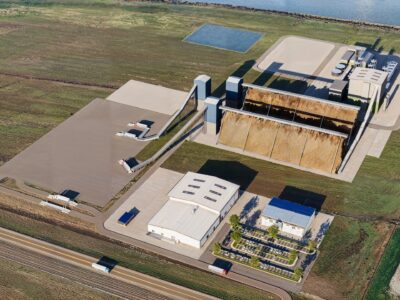AAA, the auto insurance and roadside assistance provider, conducted a consumer survey earlier this year, finding more United States drivers are losing interest in electric cars. It may seem like a step back after such a strong electric vehicle (EV) year in 2023, but Americans aren’t dismissing zero-emission vehicles entirely. Interest in hybrid vehicles spiked significantly.
The survey said only 18% of consumers would be likely or very likely to buy a new or used EV, down from 23% last year, and 63% of those who answered said they wouldn’t buy a new EV for their next car purchase.
The main issues continue to be a lack of convenient charging stations, the cost of the cars, and range anxiety. EV naysayers have noted these reasons on several occasions. However, electric cars are still viewed as attractive.
Greg Bannon, director of automotive research at AAA, said that early EV buyers aren’t looking to switch or upgrade. Then you have the people who are still apprehensive about EV ownership.
“Early adopters who wanted an EV already have one,” said Bannon in a news release. “The remaining group of people who have yet to adopt EVs consider the practicality, cost, convenience, and ownership experience, and for some, those are big enough hurdles to keep them from making the jump to fully electric.”

Photo Courtesy YRKA PICTURED
The research also suggests that most people shopping for EVs are families or couples who need more than one vehicle. An EV is an ideal second car because it performs better in short-range travel, meaning you don’t need to fill up on gas when going to the store.
Conversely, those living in a single apartment or condo are less likely to buy an EV because they cannot charge their cars at home. Even with more garages offering charging stations, home charging is still the most accessible option and probably the most affordable.
The cost of vehicles is interesting because the government has tried incentivizing more EV adoption and faster charging network expansion with the clean vehicle tax credits in the Inflation Reduction Act. However, EV sales are down this year, even though some companies reported decent first-quarter car sales.
Hybrid cars are becoming more popular amidst the decline. AAA’s survey found that 31% of consumers are very likely or likely to buy a hybrid.
The reasons were understandable: hybrids are better for long-range travel, don’t depend on public charging, and are less concerned about running out of power. Hybrids and plug-in hybrids give drivers the benefits of electrification without sacrificing the old way of driving.

Photo Courtesy Ivan Kazlouskij
“Deciding to make the leap to full electric may feel overwhelming for many consumers, and a hybrid option may be the way to bridge this gap,” Bannon explained. “Consumer demand will ultimately dictate the future, and my prediction is that we will have a mix of EVs, hybrids, and internal combustion vehicles in dealerships and on the roads in the U.S. for many decades ahead.”
EV interest isn’t falling because people don’t believe in them.
Rural America lacks a significant charging network, delaying EV adoption. However, AAA says this is a short-term interest cap, and enthusiasm may reignite with more EV advancements.
In the meantime, if they are interested in hybrid power, they can bridge the gap until more “reliable” EVs are available.
“Change is difficult – especially for big things like the type of vehicle you drive,” Bannon said in a blog post. “So, deciding to make the full leap to electric may feel overwhelming. The key is understanding the benefits and limitations.”





